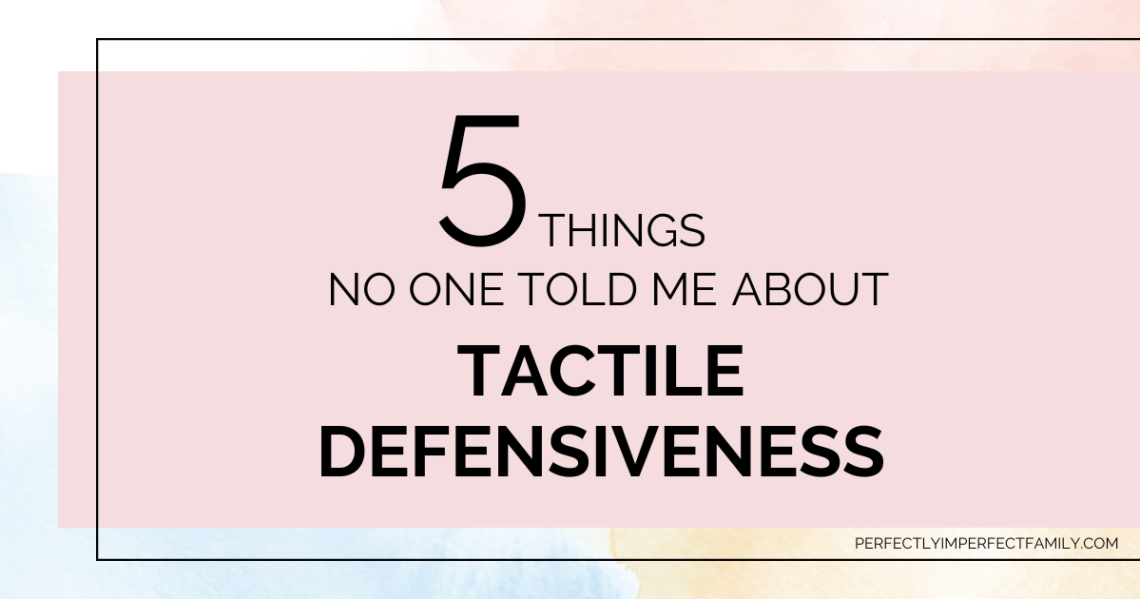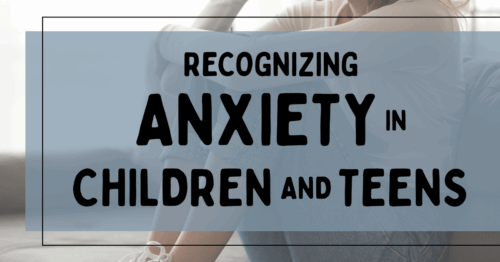
5 Things No One Told Me About Tactile Defensiveness
Looking back over the years, I realize that there were so many things I had to learn about tactile defensiveness. These five things stand out the most and that I wish I had known from the very beginning.
It’s important to understand that tactile defensiveness is something a person will carry throughout their life. It’s not something that disappears or goes away over time.
When my son was diagnosed with tactile defensiveness, our therapist never explained to us that this was something that he would always have to deal with. He told us what tactile defensiveness was, but that was it. I had to go out to the car and call my husband to have him look up what it meant for our son to be diagnosed. We were young, and this was our first child; I didn’t know what questions to ask. Knowing what I know now, I would have asked many follow-up questions.
We learned quickly after researching that he would have to deal with this his whole life. Our job as a parent was to help him learn how to cope with tactile defensiveness. We were there to help him learn and understand the skills he would need to improve his daily life.
You will spend most of their younger lives explaining tactile defensiveness to others.
No one knew what tactile defensiveness was when we talked to everyone in our families on both sides. Everyone had heard of sensory issues but not tactile defensiveness. We had to explain it to every person we spoke to. When he started school, we would meet with his new teacher every year and explain what he had. In those younger years, he sometimes had trouble with snack time in preschool. He also wouldn’t do crafts if he didn’t like touching the items they used, such as feathers or even the glue he wouldn’t like if it got on his fingers. Once he was out of elementary school, we didn’t need to meet with his teachers. We even had to tell the ladies that would cut his hair because he would always scrunch his shoulders up when they would cut his hair. He did not like the feeling of the hair falling on his face and neck.
Tactile defensiveness is a condition that many doctors are not familiar with.
I was a little surprised that I had to explain tactile defensiveness to every one of his doctors. I had to explain it to his primary care doctor, which is the one who gave us the reference to the physical therapist who diagnosed our son.
We had to explain tactile defensiveness to his dentists. As you can imagine, with his sensitive mouth, the dentist was an issue for several years. Now that he is older, he can handle going to the dentist.
Once our son was diagnosed with ADHD, we ended up going to a specialist to help us with him and to discuss medication. We had to explain TD to him, and I have learned since then that children with ADHD can sometimes have TD.
I have been surprised at how many professionals we have had to explain tactile defensiveness to over the years.
Because tactile defensiveness is not something you can physically see, It is hard to explain to your children and others why and how it can affect their everyday lives.
Since most people have no idea what tactile defensiveness is, it can be challenging for you to explain the symptoms of it to other people so that they understand. Our son couldn’t even walk because of tactile defensiveness. We had to train him to feel things on the bottom of his feet for him to start walking. People would assume he was late learning to walk, but that wasn’t the case.
For my son, explaining why he has difficulty eating has been the most challenging aspect of tactile defensiveness. This challenge is what he has to deal with every single day. And not every day but also every single meal. This one is the hardest because, once again, people assume he is a picky eater, which is not the case. We even had a therapist tell us when he was younger that it was all in his head.
Comments like that were and are very hurtful because it is not all in his head. It is a physical struggle. This is why it is so hard for people to understand him. They think it is just in his head, or he is making it up.
You always seem to be by yourself as a parent and wish someone would understand. His meal times are just one of his daily struggles with tactile defensiveness. There are many meals where he has to have something different to eat because of the texture of what the rest of our family is eating.
The small milestones are the greatest!
I wanted to end on an upbeat note. When your child has tactile defensiveness, no one tells you that the little milestones are some of the greatest joys. When we first discovered he had tactile defensiveness, he wouldn’t put his feet down on anything, not even my lap. The day that he finally stood up on my lap was the happiest moment up to that point. We celebrated even more when he finally put his little feet in the grass. It was the little milestones like these that no one tells you you will be so excited about.
Now that our son is older, the milestones are fewer and far between, but we still get excited and celebrate with him when he has a milestone. Nowadays, it is mostly when he can put a new food in his mouth!!
For those of you who have just received a diagnosis of tactile defensiveness in your young child, I hope this list helps you over the years. Just know that you are not alone in this, even though some days it feels like no one understands!






2 Comments
Cheryl Buchanan
i was’ very surprise when I read this. Because I did not know any of this information. I saw admire your bravery bringing this out. And you’re ability to research so that you can help others with this condition. What a great example you are to others.
Linda Janes
You are amazing parents and your son is also amazing and talented! You have all dealt wonderfully with this!